Greenhouse and Culture Facility
- Greenhouse space (68 m2)
- Fitoclima 10000EH and 10000EHHF phytotrons (Aralab)
- VB104 and SGC.XXX.C (Votch)
- Four versatile environmental test chambers MLR-352 (Panasonic)
- Three culture rooms with shelves
- A room for bacterial culture at 37°C
- A cold room at 4°C
Green house (surface 68 m2)

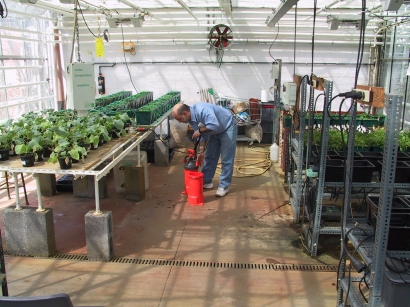
Hydroponic culture of Arabidopsis halleri
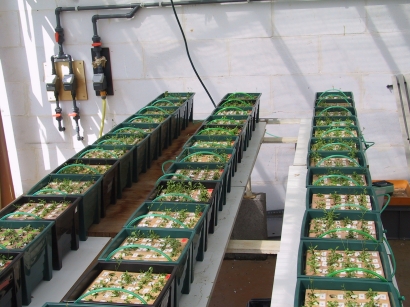
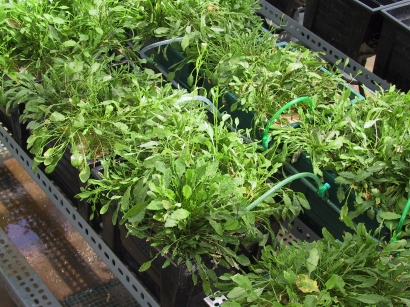
Phytotron

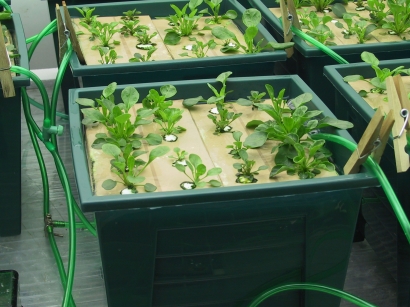
Hydroponic culture of Thlaspi caerulescens
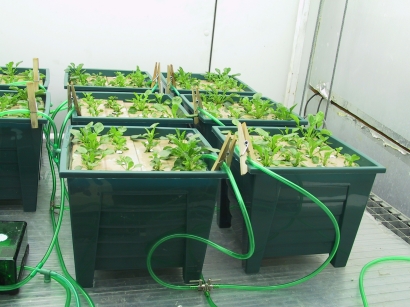
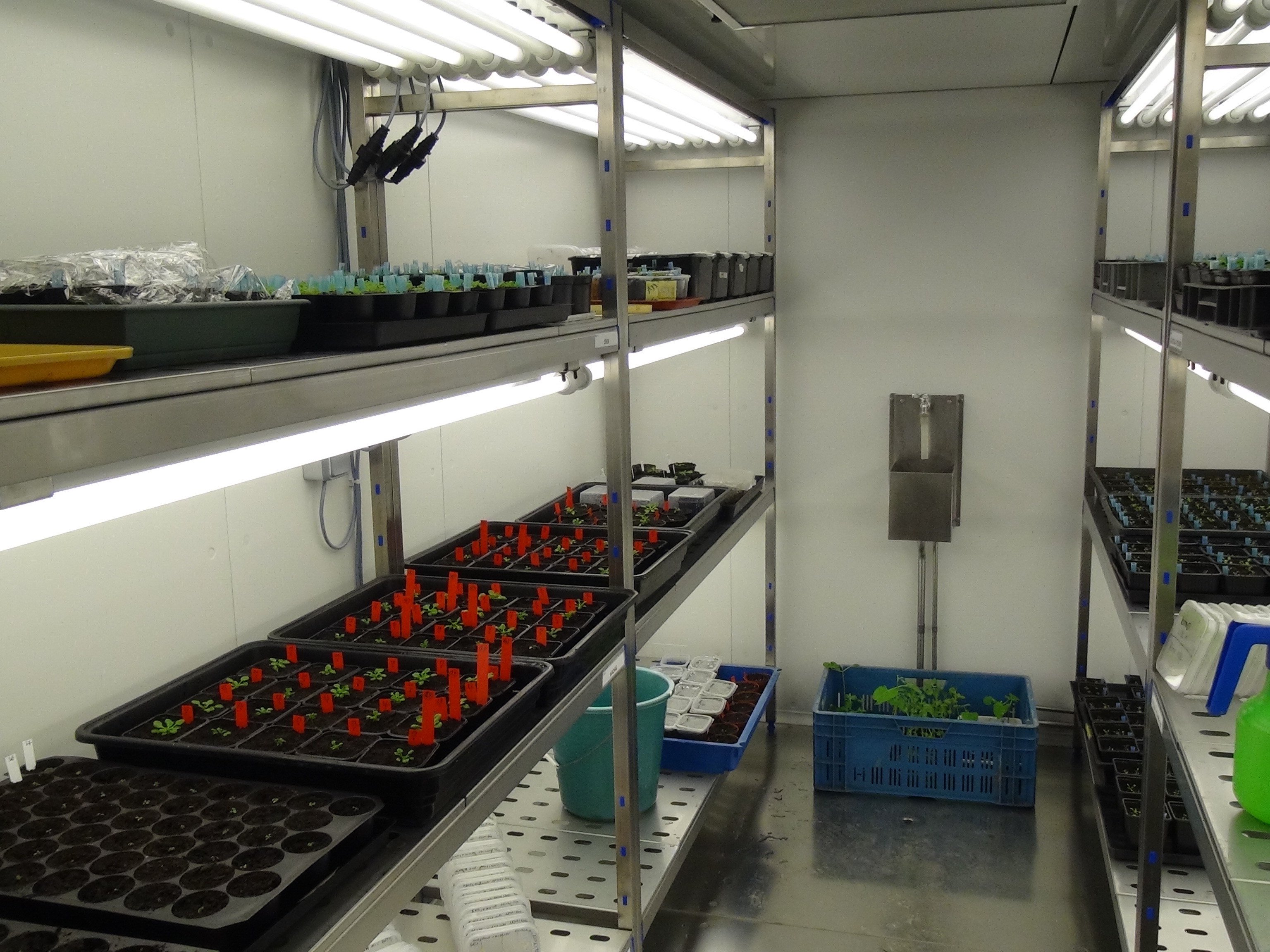
In vivo culture room
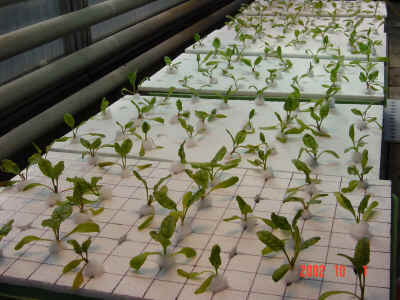
Hydroponic culture of Beta vulgaris
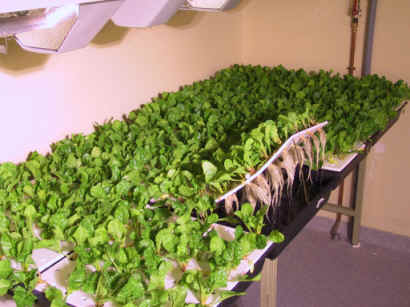
Hydroponic culture of Arabidopsis thaliana
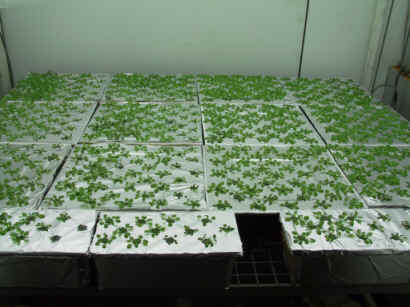
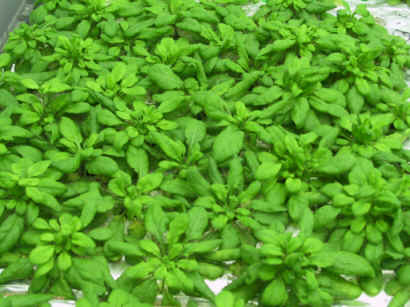
In vitro growth rooms

In vitro growth of Arabidopsis thaliana
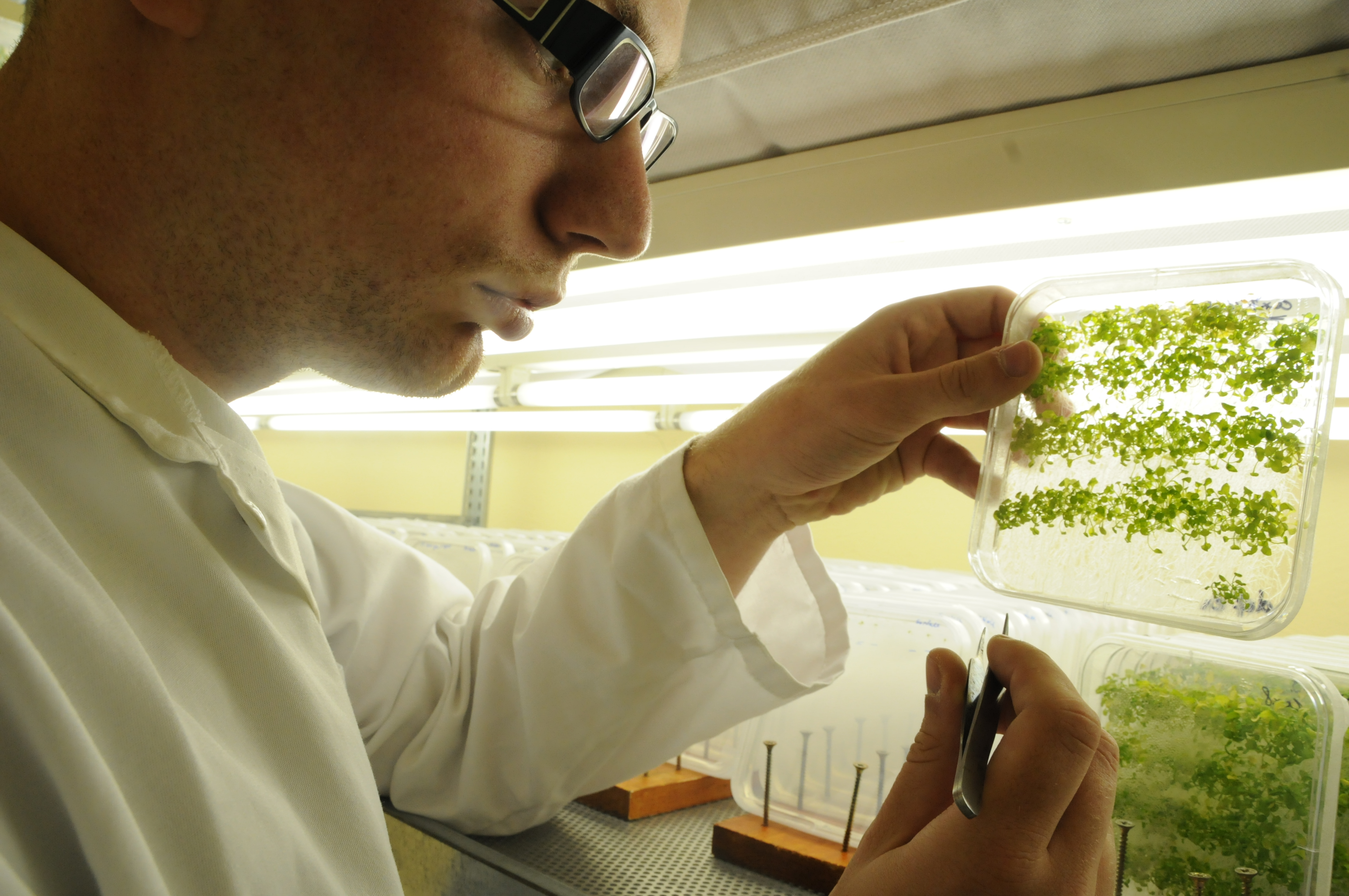
Growth conditions - Hydroponics culture
Seeds of Arabidopsis thaliana are germinated in soil. Three weeks after sowing at 8H (100µmol/m2s) light / 16 H dark, plantlets are transferred into containers for hydroponics culture. The macronutrients composition is in mM: 1,00 Ca(NO3) 2, 1,00 MgSO4, 0,88 K2SO4, 0,25 KH2PO4, 0,01 NaCl and the micronutrients composition in µM is 20,00 FeEDTA, , 10,00 H3BO3, 1,00 ZnSO4, 1,00 MnSO4, 0,10 CuSO4, 0,01 (NH4)6Mo7O24. The pH of the solution is adjusted to 5,8 ± 0,1.
To know more about different hydroponics systems: gcramer-mac.ag.unr.edu/hydroponic
Gibeaut J.M. et al., Maximal biomass of Arabidopsis thaliana using a simple, low maintenance hydroponic method and favorable environmental conditions. Plant Physiol (1997) 115:317-319.
Arabidopsis thaliana
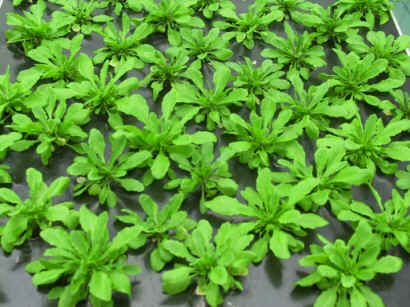
Arabidopsis halleri
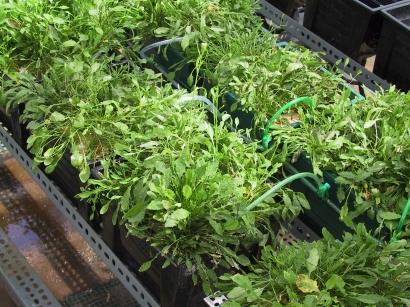
Beta vulgaris
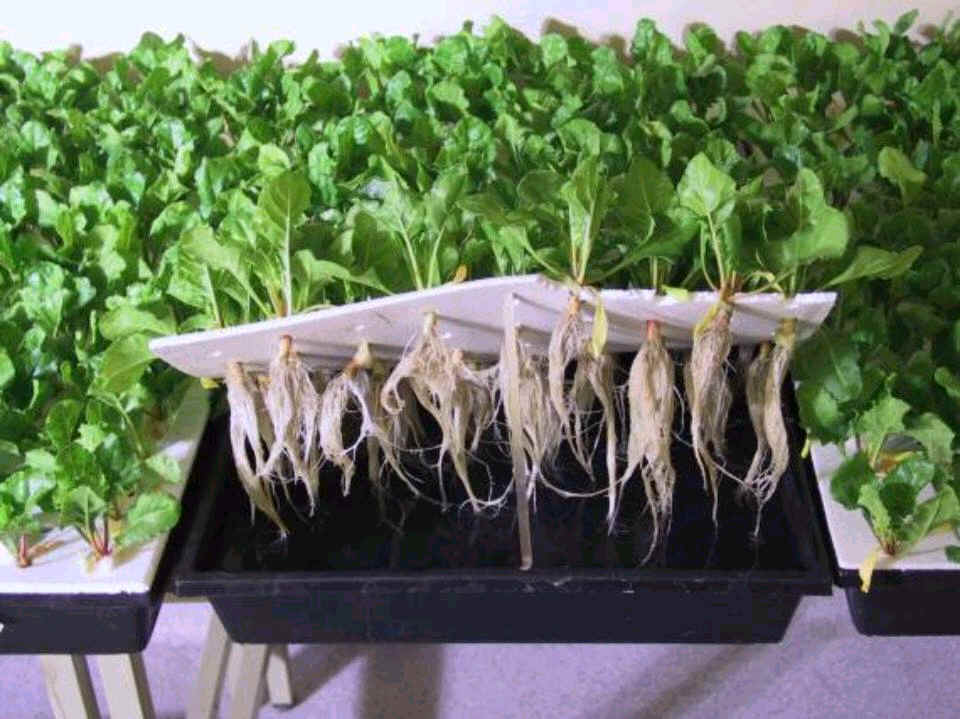
Seeds of Beta vulgaris are germinated in soil. Three weeks after sowing, plantlets are transferred into containers for hydroponics culture.
The macronutrients composition is in mM: 2,00 Ca(NO3) 2, 1,00 MgSO4, 0,88 K2SO4, 0,25 KH2PO4 and the micronutrients composition in µM is 20 FeEDTA, 10 NaCl, 10 H3BO3, 1,00 ZnSO4, 1,00 MnSO4, 0,10 CuSO4, 0,01 (NH4)6Mo7O24. The pH of the solution is adjusted to 5,8 ± 0,1. In the Mg deficiency experiments, plants are fed with a Mg-free nutrient solution, which is the same as above formulated, except that 1,00 mM MgSO4 was replaced by 1,00 mM Na2SO4.
During all the experiment, nutrient solution are replaced every 4 days. The growth conditions in the culture room are 16 H light (300 µE m-2 s-1) / 8 H dark photoperiodism, temperature 23°C.
Thlaspi caerulescens - Thlaspi arvense
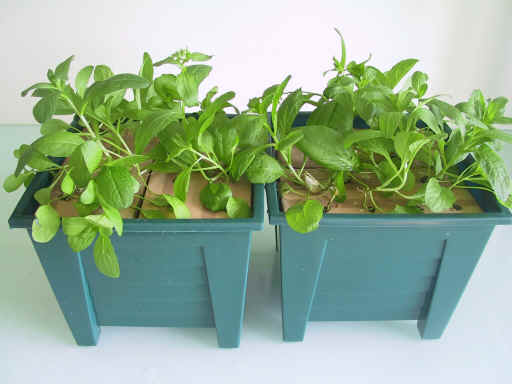
Seeds of Thlaspi are germinated on sterilized and moistened sand. After germination, the sand is moistened with 0,2-strength nutrient solution (see below). Five to seven days after germination, seedlings are transferred to 1,2 l vessels (10 plants per vessel) containing a nutrient solution (Basic "modified" 0,1 strength Hoagland's solution) which composition is in mM: 0,40 Ca(NO3) 2, 0,20 MgSO4, 0,50 KNO3, 0,10 KH2PO4 and the micronutrients composition in µM is 20 FeEDDHA, 10,00 H3BO3, 10,00 ZnSO4, 2,00 MnSO4, 0,20 CuSO4, 0,01 Na2MoO4. Plants are grown in a glasshouse with supplementary illumination provided by sodium-vapour lamps to give a photoperiod of 16 H per day.
The nutrient solution is aerated continuously and renewed every seven days.
Equipment
- Automated device for nucleic acid purification: Maxwell 16 Instrument (Promega)
- Pikoreal qPCR machine - 96 wells (Isogen)
- Three thermocyclers
- Ultra low temperature freezer C585 (New Brunswick)
- Bioluminescence cabinet: NightSHADE LB 985 in vivo Plant Imaging System (Berthold)
- Leaf absrobance: CCM-200 (Opti-Sciences)
- Chlorophyll fluorescence: Handy PEA (Hansatech)
- CO2/H2O detector: LCpro-SD (ADC Bioscientific)
- Spectrophotometers: MD-1105 and MD-2100 (Ceti), Nanodrop 2000 (Thermo Scientific)
- Ethylene detector: ED-300 (Sensor Sense)
- Rhizotron tubes with in situ camera system CI-600 (CID Bioscience)
- Table centrifuges and shaking water baths
- 1D electrophoresis equipment
- 2D electrophoresis equipment
- Laminar flows (included one Biohasard model)
- Automatic autoclave (industrial type)
- Two incubator-shakers for cell culture (plant and yeast)
- A research microscope (Nikon-Eclipse E800) and a stereomicroscope (Nikon-SMZ 1000) equipped for fluorescence studies, with a digital acquisition system (Nikon-DXM 1200).